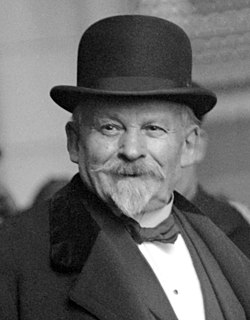Evening everyone! It’s been a while since I last posted, but I’ve been reading some interesting material lately that got me thinking about trading a lot. Trading the markets isn’t just about knowing trends, resistances, and spotting various opportunities; it’s also about mastering yourself, I would say. A significant part of it is actually about your mindset and how you approach it. We’ve all seen videos where people claim it’s possible to profit without deep knowledge, and although it might not be the most comforting thought when we’re learning, there’s some truth to it.
How frustrating is it when we correctly predict a move but still lose money? Yet, when we’re in our flow and doing well, we find that even when we predict wrongly, we still make some cash. It’s all in the execution, as I’ve said before, which is true, but a large part of that execution is your mental state. Nothing describes this better than Coué’s Law.
Consider this example that many of us can relate to: imagine a plank of wood lying on the floor, 30cm wide and 10ft long. You walk along the plank from one end to the other without touching the floor—no problems, right? After all, it’s just walking, the same as anywhere else; it’s easy!
Now, envision the same plank of wood suspended 10ft in the air. The task is exactly the same: walk from one end to the other. However, this time, as you walk along the plank, you look down and think, “That’s a bit of a drop, I don’t want to fall.” You start to worry about falling, your heart beats faster, and you think about how much it would hurt if you fell. Your legs start to tremble, sending a message back to your brain that you’re going to fall. The more you fixate on the thought of falling, the more you tremble, and in the end, the likelihood of falling increases significantly. If you do fall, you give yourself a pat on the back because you were right. But in reality, your negative thinking became a self-fulfilling prophecy because of Coué’s Law.
Isn’t it strange how it works? You could probably think of many different scenarios that confirm this to be true. Is it any wonder top athletes often spend a lot of time visualizing the outcome they desire before racing? It’s the complete opposite of the above example!
So why should it be any different for our trading? It isn’t! We’ve all had those days where nothing seems to go our way, and we lose one trade after another, starting to feel paranoid. When that happens, we’re reinforcing negative thoughts to ensure they come true. Of course, there will be cases where probability throws up some strange results due to adverse behavior, but overall, we are creating the outcome, whether we realize it or not.
A good example of this over the long term might be someone I talk to from time to time who recently hit a 60% loss rate. Obviously, this took its toll mentally on the person as it’s a significant percentage of their returns! From that point on, I recall talking to them for a few days where they were struggling and only making a fraction of what they usually would. The market hadn’t changed, as I was still making my usual amounts, as were others, but to them, they were actually changing their outcome because of their thoughts. After all, if you don’t think it’s worth it, then why bother?
It’s certainly interesting stuff! I’m looking forward to working my way through the rest of this book as hopefully, it will help me realize and change the way I think so I never lose again! Ha Ha—wishful thinking (or did I just make that the truth with my sarcasm?)
Until next time!


6 thoughts on “Coué’s Law”
Nice post dude.
“If your afraid to fall, you fall because your afraid”
This was an old quote I remember from my free running days, and it really does apply to trading ha
Michael
I enjoy this Blog a lot and hope you enjoyed holls Caan now give us an update you kept us waiting ages lol 😉
I will do shorty i promise!! just been so busy, check again in the next couple days mate
Caan. Interesting posts mate. I enjoy reading them. One question here, what is “the PC3 band of 60%” you refer to in this post. ?
Cheers
Alan
Hi Alan,
Premium Charge 3 (they have altered it several times) currently stands at profitable customers over £250,000 Net profit on their account have to pay up to 60% depending on generated commission – its complicated how its calculated – i wouldnt worry untill your half way there at least 🙂